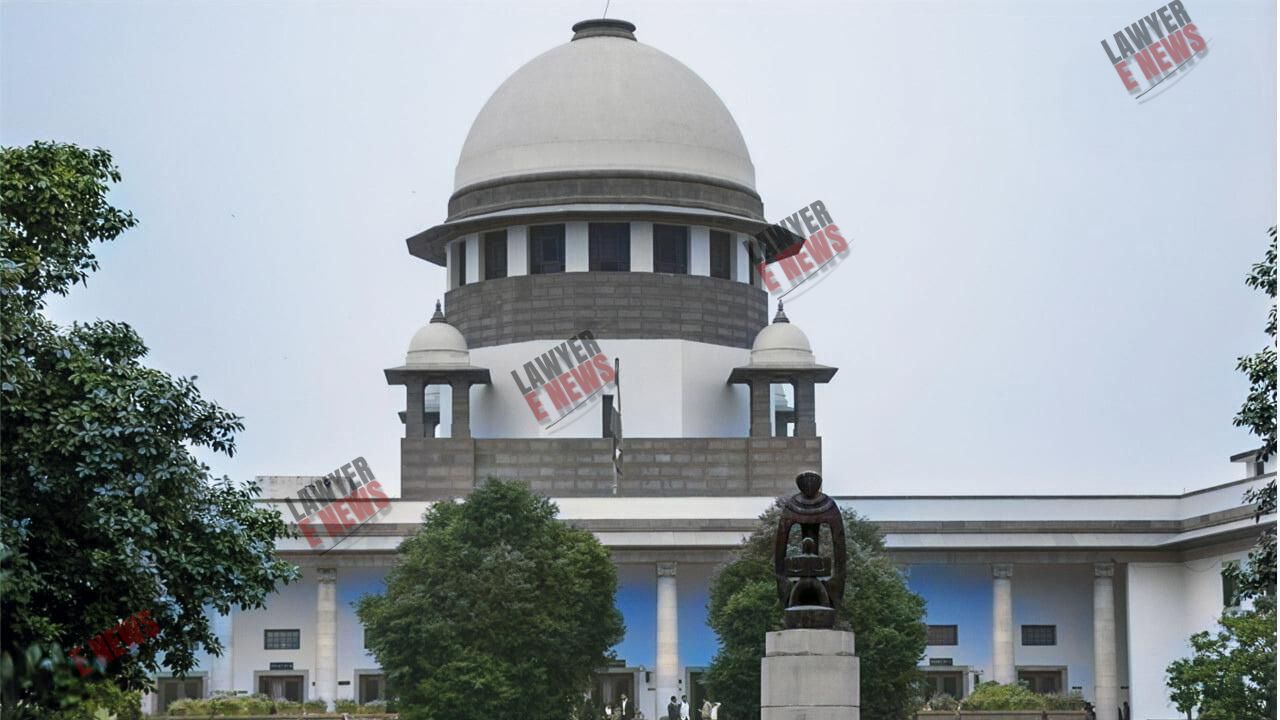-
by Admin
17 February 2026 4:58 AM



No Certified Copy, No Delay Application, No Sufficient Cause — Appeal Barred By Law: Supreme Court of India decisively reaffirmed that the limitation period for filing an appeal under Section 61(2) of the Insolvency and Bankruptcy Code, 2016 (IBC) is strict and cannot be relaxed — not even by the Court itself — beyond the statutorily prescribed period of 45 days (30 + 15 days).
Dismissing the appellant’s plea seeking condonation of a 10-day delay in filing an appeal before the NCLAT, the Supreme Court ruled that non-filing of certified copies and false averments in pleadings amounted to suppression of facts and that “the reasons assigned by the Appellate Tribunal while passing the impugned order are justified and in accordance with law.”
“IBC Prescribes a Time-Bound Framework That Cannot Be Diluted by Procedural Excuses”
The dispute stemmed from two appeals filed before the National Company Law Appellate Tribunal (NCLAT) by A. Rajendra, a suspended Managing Director and shareholder of Dharti Dredging and Infrastructure Ltd., challenging NCLT’s orders passed on July 20, 2023. The orders rejected his request for placing his resolution plan before the Committee of Creditors (CoC), while approving another plan submitted by Respondent No. 5.
The appeals were filed before the NCLAT on August 28, 2023 — beyond the 30-day statutory window — and without certified copies of the orders. Worse still, the appellant did not initially file condonation applications, and when he did, he offered inconsistent explanations and failed to show sufficient cause, thus leading the NCLAT to reject the applications.
"When Time Starts Running from Pronouncement, Delay Cannot Be Excused Without Certified Copy Application"
Rejecting arguments based on knowledge of the order or receipt of a free certified copy, the Court held: “The period of limitation commences from the date of pronouncement of the order and not from the date the order is made available to the parties.”
Citing its earlier decisions in V. Nagarajan v. SKS Ispat and Power Ltd. and National Spot Exchange Ltd. v. Anil Kohli, the Court emphasized: “IBC envisions a fast-track insolvency process. Allowing parties to delay filing by waiting for certified copies would defeat this object and render the time-bound mechanism toothless.”
The Court also reiterated: “Rule 22(2) of the NCLAT Rules requires certified copies to be annexed to the appeal. Exemption cannot be claimed as a matter of right.”
False Pleadings, No Clean Hands: Court Criticizes Appellant’s Conduct
The Supreme Court disapproved of the appellant’s misstatements in the grounds of appeal, where it was falsely asserted that the appeals were filed within the limitation period and that certified copies had been applied for. The Court observed: “The appellant had not come to the Court with clean hands and is guilty of suppressing facts.”
Further, the condonation plea in one appeal was filed much later — on December 6, 2023 — well beyond the 45-day cap.
The Court held: “The satisfaction for condoning delay has to be of the Appellate Tribunal and that too on justifiable grounds, which are absent here. No sufficient cause has been shown.”
Conclusion: Strict Construction of Limitation Under IBC Reaffirmed
Upholding the NCLAT's refusal to entertain the delayed appeals, the Supreme Court concluded: “Appeals as preferred by the appellant need to be dismissed as they were filed beyond 30 days and no steps had been taken to seek certified copy of the order.”
“The legislative intent behind IBC’s strict time-frame must be honoured — extensions are neither a right nor to be granted liberally.”
Date of Decision: April 4, 2025
